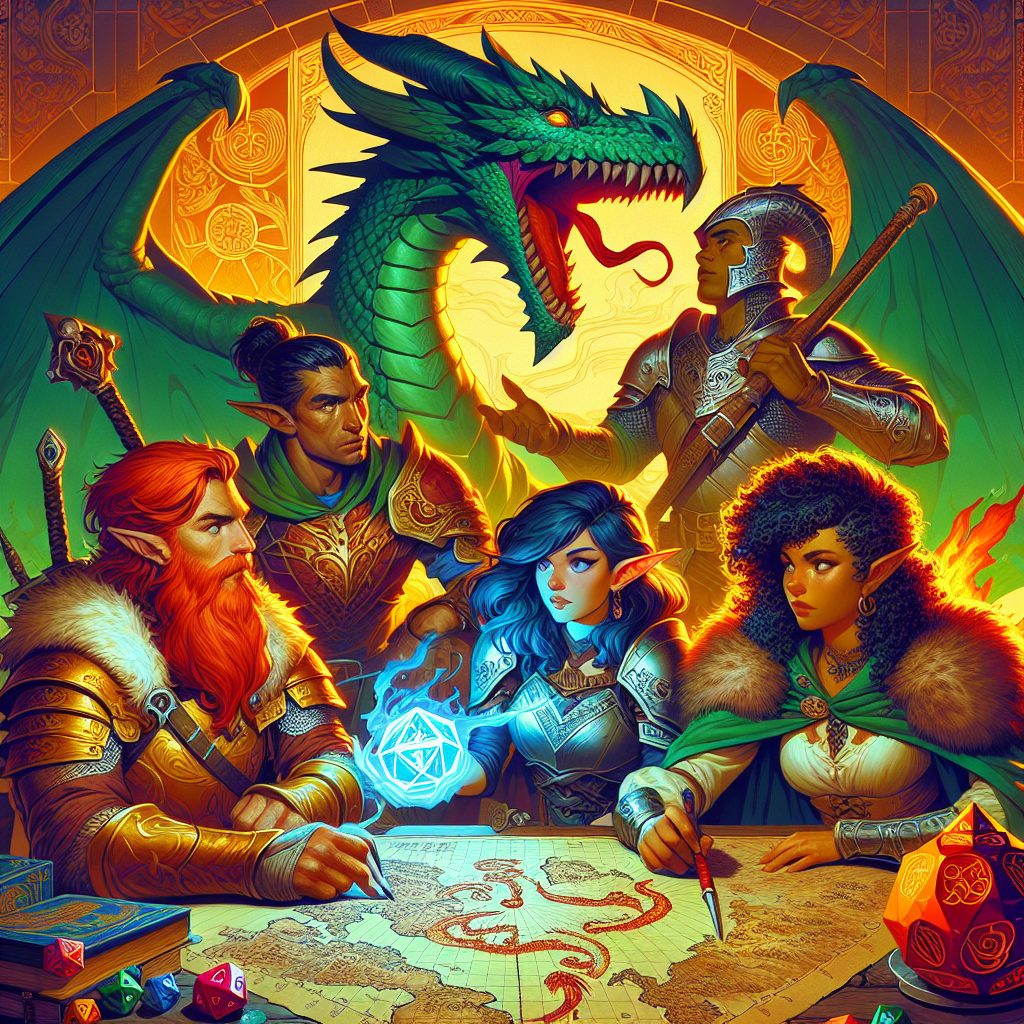Mastering the Dungeon: Tips for Newcomers to Dungeons and Dragons Board Games
Dungeons and Dragons (D&D) is more than just a game; it’s an experience that transports players into fantastical realms, igniting the imagination and fostering camaraderie. With its blend of storytelling, character development, and strategic gameplay, D&D has captured the hearts of millions. If you’re a newcomer eager to dip your toes into the world of tabletop role-playing games (RPGs), mastering the dungeon can be both exhilarating and daunting. To make your journey smoother, here are some invaluable tips to help you navigate your first adventures successfully.
1. Understand the Core Concepts
Before diving deep into the game, familiarize yourself with some key concepts:
-
Character Creation: Your character is your avatar in the D&D world. Take your time to explore different races (like elves, dwarves, and humans) and classes (such as fighters, wizards, and rogues). Think about your character’s backstory, motivations, and personality traits.
-
Role of the Dungeon Master: The Dungeon Master (DM) is the game’s storyteller and referee, guiding players through the story and managing the world. Understanding this role can help you better appreciate the narrative flow and your place within it.
- dice Mechanics: D&D relies on various dice to determine outcomes. Familiarize yourself with the polyhedral dice (d4, d6, d8, d10, d12, and d20) and how they influence attacks, skill checks, and saving throws.
2. Communicate and Collaborate
D&D is a team-oriented game, and collaboration is key to a successful adventure:
-
Discuss Expectations: Before starting the campaign, have an open discussion with your fellow players and the DM about what everyone hopes to get from the game. This can include tone, themes, and how serious or lighthearted the game will be.
- Work Together: Emphasize teamwork during encounters and problem-solving scenarios. Each character has unique abilities that can complement one another. For example, a tank character might absorb damage while a healer keeps the party healthy.
3. Embrace Your Character
Getting into character can significantly enhance your gaming experience:
-
Role-Playing: Don’t be afraid to role-play your character. Use accents, mannerisms, and personality traits to bring your character to life. This not only enhances your enjoyment but can also influence how the DM shapes the story.
- Backstory Integration: Share your character’s backstory with the DM. This can lead to personal quests or deeper engagement with the campaign’s narrative, making the world feel alive and connected to your character.
4. Learn the Rules, But Don’t Get Caught Up
While it’s essential to understand the rules, don’t let them stifle your creativity:
-
Know the Basics: Familiarize yourself with crucial rules, such as combat mechanics, spellcasting, and actions you can take during your turn. However, remember that many DMs are open to improvisation and storytelling over strict rule adherence.
- Ask Questions: If you’re uncertain about a rule or situation, don’t hesitate to ask the DM or other players. Most will be more than happy to help you understand without judgment.
5. Keep the Spirit of Adventure Alive
D&D is about narrative exploration, and keeping your sense of wonder is essential:
-
Stay Open-Minded: Expect the unexpected! DMs often throw curveballs, and adaptations can lead to thrilling moments. Embrace the twists and turns instead of seeking to control every outcome.
- Creativity is Encouraged: Think outside the box when facing challenges. Whether it’s coming up with clever solutions in combat or unique ways to interact with NPCs (non-player characters), creativity can lead to memorable moments.
6. Manage Time and Pacing
Dungeons and Dragons sessions can vary in length, so managing time is crucial:
-
Plan Your Session: If you’re the DM, outline what you hope to cover during the session. For players, be mindful of how long you spend on actions to keep the game flowing.
- Breaks Are Important: If your session is running long, don’t hesitate to take breaks. This gives players a chance to recharge, allowing for more active participation when the game resumes.
7. Have Fun!
Remember, Dungeons and Dragons is ultimately about enjoying the experience. Here are a few simple reminders to enhance your fun:
-
Celebrate Successes: Celebrate the small victories and character developments, not just the major milestones. Every step forward in your character’s journey deserves recognition.
-
Learn from Mistakes: Not every session will go perfectly, and that’s okay! Mistakes can lead to funny moments or unexpected plot twists. Embrace them as part of the experience.
- Bond with Your Group: The friendships you forge during these adventures can often be just as rewarding as the in-game accomplishments. Engage with your fellow players outside of the game to strengthen those connections.
Conclusion
Mastering the dungeon of Dungeons and Dragons is less about perfecting every rule and more about immersing yourself in the adventure alongside fellow players. With these tips, you’ll not only feel more prepared for your first journey but also discover the magic of storytelling, collaboration, and friendship that make D&D a beloved pastime for many. So gather your friends, roll those dice, and let the adventure unfold!




